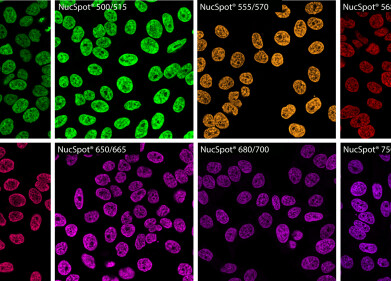-
 New approach uncovers protective factor for heart disease
New approach uncovers protective factor for heart disease
Microscopy & Microtechniques
New approach uncovers protective factor for heart disease
Aug 01 2014
A number of mutations have been identified from the extensive research of thousands of pieces of DNA from Finnish individuals. These, which are found at unusually high frequencies, are able to destroy gene function and two of them could help reduce a person's risk of heart disease.
The two LPA mutations in question are somewhat of a breakthrough for genomic research as it is a proof-of-concept for a new approach. The "genotype first" method aims to identify rare genetic variants associated with or that protect against certain diseases. Once these are identified, an extensive review is carried out of their carriers.
The new study, published in the PLOS Genetics journal, was conducted by researchers from the Broad Institute, Massachusetts General Hospital (MGH), the University of Helsinki, and an international team of collaborators.
The team studied the portions of genomes that relate to protein-coding genes - exomes - from 3,000 Finnish people and compared them to the same number of non-Finnish Europeans. They found 83 gene-deactivating variants that were at least twice as prevalent in Finns, and then studied these variants in more than 35,000 Finnish people.
Recent research for diseases such as HIV, Crohn's, and type 2 diabetes has found that such mutations are able to, in some cases, protect people from the disease - rather than cause it. This has led scientists to consider the therapeutic possibilities of these loss-of-function mutations.
Geneticists have known that Mendelian, recessive genetic diseases that are caused by a single, mutated gene - such as cystic fibrosis - are more common in isolated populations because of the "bottlenecking" phenomenon. Within small populations, their genetic diversity over generations means that occasional rare genetic variations can by chance become much more common. This study demonstrates that this principle can help researchers identify rare, loss-of-function variants in genome-wide association studies on these isolated populations.
The LPA gene encodes Lipoprotein(a), a known risk factor for heart disease. The variants in the paper reduced levels of LPA gene expression causing lower levels of Lipoprotein(a) in the blood. By examining medical records, the team were able to find that the loss-of-function variants were not associated with other health problems, making blocking LPA expression a potentially exciting therapeutic approach.
Digital Edition
Lab Asia 31.6 Dec 2024
December 2024
Chromatography Articles - Sustainable chromatography: Embracing software for greener methods Mass Spectrometry & Spectroscopy Articles - Solving industry challenges for phosphorus containi...
View all digital editions
Events
Jan 22 2025 Tokyo, Japan
Jan 22 2025 Birmingham, UK
Jan 25 2025 San Diego, CA, USA
Jan 27 2025 Dubai, UAE
Jan 29 2025 Tokyo, Japan


















